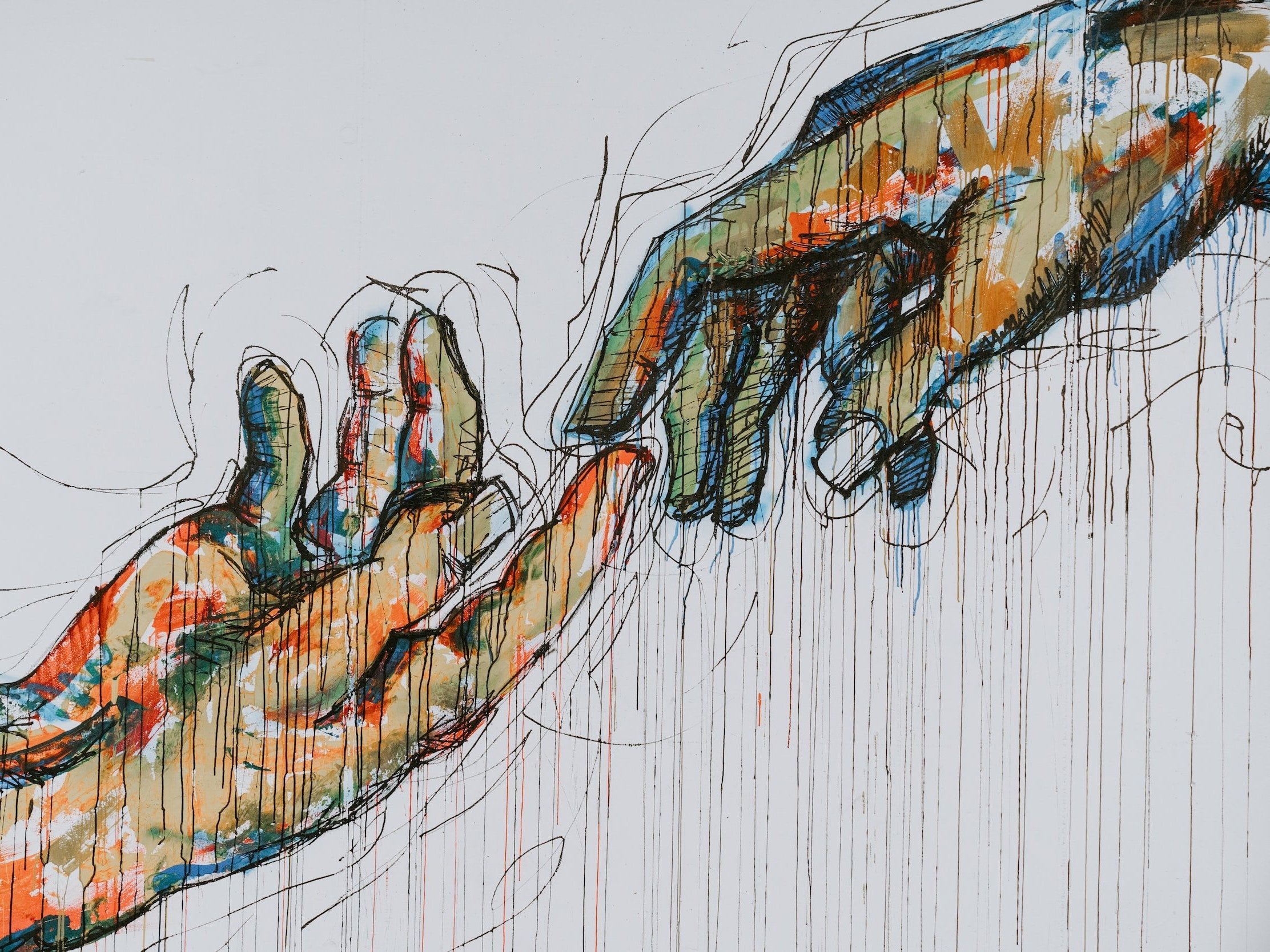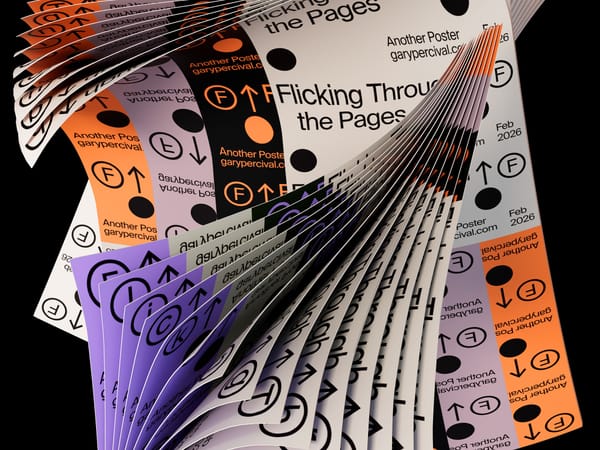Making Your Network Stronger With Simple Acts of Reciprocity
Finding success as a creative can be intimidating.

Finding success as a creative can be intimidating.
The competition is fierce, and it’s hard to stand out among the flood of other talented professionals.
Building relationships and a strong network are essential for any creative—you never know when an opportunity will present itself or when you'll require assistance with something!
But how can we develop our networks in logical and meaningful ways?
Reciprocal networking is a step that artists of all types should consider taking advantage of, regularly exchanging favours, skills, knowledge, and resources with other creatives.
Creating a close-knit community through reciprocity allows you to form specialised connections that go above and beyond what most people expect from "networking"; this type of mutual support system provides invaluable opportunities for everyone involved.
In this blog post, we'll go over the benefits of strengthening your network through simple acts of reciprocity, so let's get started!
The benefits of reciprocity in business and networking
Networking is essential in today's world, as it can provide access to new people, resources, and opportunities that are outside of our immediate circle. Building a strong network requires us to be active in establishing relationships that are mutually beneficial.
Reciprocity is the act of giving and receiving something with mutual benefit. It involves doing small favours for others without expecting anything in return, with the understanding that the favour will eventually be reciprocated—creating an exchange of favours that strengthens relationships and builds trust amongst those involved.
For freelance graphic designers and other creatives, networking through reciprocity can open up powerful collaborations and create meaningful business partnerships.
One effective way to build this type of relationship is through simple acts such as writing a good review for someone’s work or introducing someone to someone else who can benefit from their skill set.
Small gestures like these can help foster long-term relationships between creatives and businesses, which can lead to more freelance gigs, referrals, and other lucrative opportunities.
Furthermore, it's important to remember that reciprocity doesn't always have to involve money; some of the most valuable forms of reciprocity come from engaging in thoughtful conversations or offering advice related to graphic design or marketing strategies.
This type of intangible exchange helps create strong personal connections between parties, which may bear fruit down the line when it comes time for collaboration or referrals.
Reciprocity also has a ripple effect; by helping others out with no expectation of return, we are not only strengthening our own network but also creating opportunities for those we've helped.
As such, reciprocal networking should be seen as an investment in ourselves—as well as others—given its potential to open up doors that would have otherwise been closed off if we hadn't taken the time to extend a hand and help someone out along the way.
How to give without expecting anything in return
Giving without expecting anything in return is one of the most effective yet underutilised methods of strengthening a network.
To succeed as freelance graphic designers and other creatives, we must cultivate strong and dependable networks of peers, partners, and clients.
However, simply having multiple contacts is not enough; those relationships must be nurtured in order to be fully beneficial.
Sending thoughtful gifts or simple acts of reciprocity that demonstrate your appreciation for the people in your network is one way to do this.
This does not have to be a costly gesture; even sending a handwritten card or making an introduction on social media can leave a lasting impression.
By taking the time to acknowledge others' help, you demonstrate that you value their relationship with you and take it seriously.
You can also express your gratitude by offering resources or advice when they are in need. There are many ways to help others while also strengthening your own network of contacts, whether it's a blog post about effective graphic design techniques or hosting an online meet-up for freelance creatives in your area.
Providing assistance will not only generate goodwill, but it may also lead to new opportunities that will benefit both parties in the future.
Finally, don't forget to follow up! Maintaining contact with everyone in your network is critical for building trust and establishing yourself as a trustworthy asset among freelance creatives.
Maintain regular contact through emails or messages, as well as "check-ins" via phone or video calls. You can also join various online graphic design and freelancing communities, such as Facebook groups or Reddit forums.
All of these activities will keep you up-to-date on what other professionals are up to and may lead to new collaborations down the road.
By thoughtfully and consistently engaging with others, freelance graphic designers can strengthen their networks through simple acts of reciprocity that will pay dividends in the long run by creating meaningful relationships with other creatives who will be able to provide valuable guidance and support throughout their freelance careers.

Ways to build a reciprocal relationship with others
Creating a solid network can be challenging, particularly if you're just starting out as a freelance graphic designer or other creative professional. However, with the proper approach, you can strengthen your network through simple acts of reciprocity.
Here are a few guidelines for freelance graphic designers and other creatives who wish to establish reciprocal relationships with others:
Offer Feedback: One of the best ways to show others that you value them and their work is by providing candid feedback. If someone approaches you with a project proposal or portfolio, take the time to provide detailed feedback on their strengths and areas of opportunity.
This guidance not only fosters trust and respect but also affords them the chance to develop professionally.
Resources to Share: Given the level of competition in freelance graphic design and other creative fields, access to high-quality resources can be crucial to success.
Whenever possible, don't be hesitant to recommend helpful books, online courses, websites, software programmes, and other resources you've discovered useful in your own freelance endeavours.
Connecting Professionals: Freelance creatives can take advantage of networking events to meet potential clients and partners. Connect individuals who would benefit from collaborating, such as clients seeking freelance graphic designers or creatives seeking new team members for upcoming projects.
When professionals feel as though they are a part of something larger than themselves, such as a supportive community, there is a good chance that they will remember you when opportunities arise within their own networks in the future.
Please provide testimonials and reviews: When it comes to freelance work, testimonials are incredibly effective marketing tools; positive reviews make all the difference when potential clients are deciding who to hire for their project needs (and vice versa).
If someone has done good work for you in the past, even if it was unpaid, take the time a few months later to write a review that accurately reflects your experience working with them.
- Give credit where credit is due: Always give credit where credit is due when collaborating with other creatives, both publicly and privately. Recognising each other's efforts will aid in the development of trust within the freelance community and create more opportunities for future collaboration.
- Referrals: Referrals from reputable sources are essential for freelance work. If you know someone who would be a good fit for a job or project that you don't want to do, refer them instead! This will not only benefit them, but it could also provide you with future opportunities.
Exchange Services: The exchange of services is an additional excellent method for establishing reciprocal relationships with others in your industry.
Instead of asking for payment in advance, offer to trade a skill you do have, such as design or coding, if someone needs assistance with a task that falls outside your area of expertise.
Offer Free Advice: Whether they are freelance clients or coworkers, offering free advice can be an excellent way to build relationships and demonstrate your expertise within your network.
Advising without monetary compensation demonstrates that you value the success of others and makes them more likely to return the favour in the future.
By engaging in these types of simple acts of reciprocity, freelance graphic designers and other creatives can demonstrate their dedication while taking steps toward establishing long-lasting relationships with colleagues.

What to do when someone doesn't reciprocate
As freelance graphic designers, we often find ourselves networking with a variety of people in the same industry.
Networking is an essential part of building relationships and expanding our horizons, but it can also be complicated when one-sided connections are made.
It's important to remember that reciprocity is key when it comes to building strong networks: if someone does something for you, make sure to do something in return.
But what happens when someone doesn't reciprocate?
It’s important to evaluate the situation before taking any action. For example, if the person who hasn’t reciprocated is a new acquaintance that you recently connected with on LinkedIn or at an event, they may just need more time to respond.
Give them some space and don’t take their lack of response as a personal affront. If you have given them enough time but still received nothing in return, then it's time to move on.
If the person who hasn’t reciprocated is someone you know more personally or have worked with before, then a direct approach might be necessary.
Ask them if there is something they need from you, or offer to do something in return for what they have done. If it's clear that the person is not interested in reciprocating, then cut ties and look for deeper relationships elsewhere.
At the end of the day, networking should be a mutually beneficial relationship. The key to making your network stronger with simple acts of reciprocity starts with understanding when it’s time to give and receive.
And remember: don't take lack of response personally—it just means it's time to move on!
You should also make sure that you are being proactive with your networking efforts and looking for ways to give back first rather than expecting others to help out without reason or incentive.
People tend to be more willing to offer assistance if they see that there is mutual respect between both parties—so be generous and understanding while also taking steps towards self-improvement and development so that others are inspired by your efforts!
The importance of being genuine in your relationships
When it comes to freelance graphic designers and other creatives, being genuine in your relationships is key. In order to strengthen your network, you must establish relationships based on more than just mutual benefit.
Strong networks are founded on a bedrock of trust, shared values, and regard. And the best way to cultivate such relationships is to interact with them genuinely and authentically.
Reciprocity is the foundation of strong relationships. When you make an effort to get to know others and understand their needs, it is more likely that you will receive the same in return.
This implies that when someone agrees to work with you or lends an ear to hear your ideas, they expect the same level of respect from you. It is essential to establish a relationship in which both parties feel valued and appreciated for their contributions.
Additionally, being genuine entails being truthful about what you can offer and what you seek in terms of collaboration or advice. When forming relationships, it is essential to have reasonable expectations so that all parties can benefit from each other's expertise and experience.
To ensure the success of a project, freelance graphic designers need to ensure that both parties are aware of the nature of the work, who will perform it, and the amount of time required.
Reciprocity also involves recognising when someone has gone above and beyond to assist or support you. Not only does recognising these contributions strengthen relationships, but it also demonstrates that you value the effort they put into working with or assisting you.
Even if there is no immediate benefit or reward, expressing gratitude encourages people to continue investing in the relationship, which can result in long-lasting bonds between creatives and freelance graphic designers alike.
Freelance graphic designers should strive to develop meaningful relationships with their peers through simple acts of reciprocity such as communication, collaboration, recognition, and gratitude.
Not only is it advantageous for freelance creatives to build strong networks, but it also improves their opportunities for growth within their field and the industry as a whole.

Networking is essential in today's world, and the best way to build a strong network is through simple acts of reciprocity. By helping others and being helped in return, we not only strengthen our own network but also open up opportunities for collaboration.
Through small gestures, such as writing a good review or introducing someone to someone else, we can create powerful connections that will benefit everyone involved.
So let me know in the comments—what are some ways you've used reciprocity to build your networks? How have those networks benefited you?



